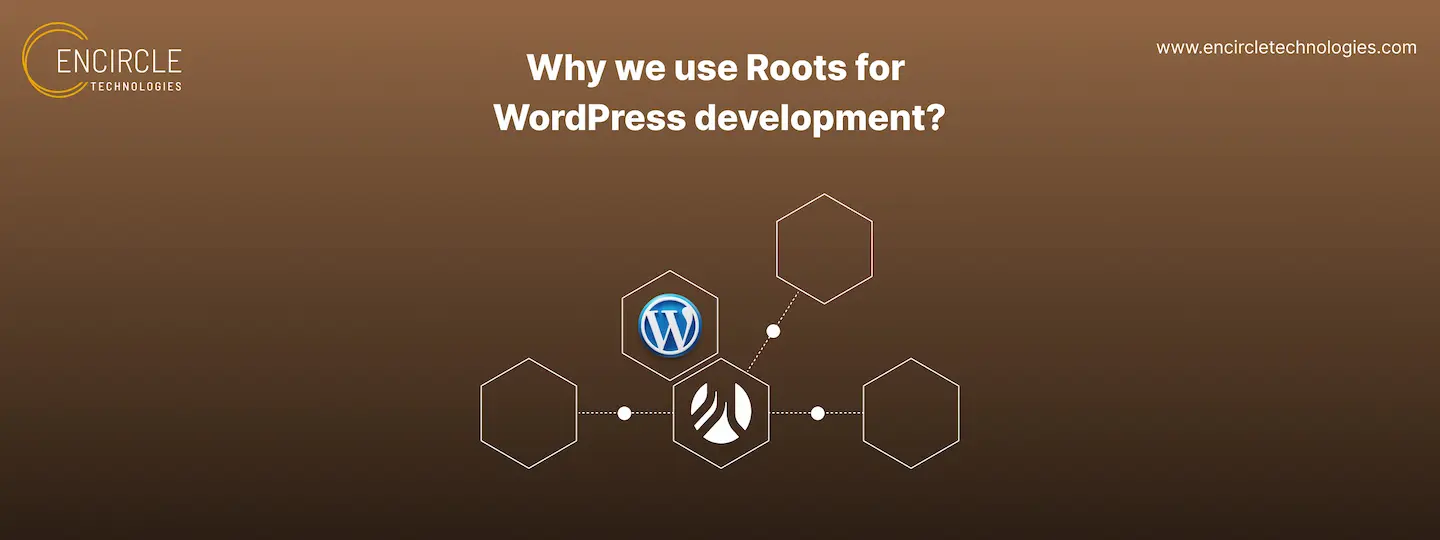WordPress is a powerful and popular content management system (CMS) that powers millions of websites worldwide. It offers a user-friendly interface and a wide range of themes and plugins to extend its functionality. While WordPress itself is an excellent platform, developers often seek tools and frameworks that enhance the development process and improve the overall performance of their WordPress projects.
One such framework that has gained significant popularity among developers is Roots. In this article, we will explore why Roots has become a preferred choice for WordPress development.
Modern Development Workflow
Roots provides a modern WordPress development workflow that follows best practices in web development. It introduces a set of tools and conventions that streamline the development process, making it more efficient and maintainable.
Roots leverages technologies like Composer, Yarn, Webpack, and Git, allowing developers to manage dependencies, automate tasks, bundle assets, and collaborate effectively with teams. With Roots, developers can build WordPress projects using the latest web development techniques and tools, ensuring code quality and project scalability.
Bedrock: A Better WordPress Project Structure
Roots introduces a project structure called Bedrock, which offers a cleaner and more organized way to manage WordPress installations. Bedrock moves the WordPress core files outside the webroot directory, making it easier to maintain the application's security and version control.
By separating the WordPress core from the rest of the codebase, developers can focus on their custom themes and plugins without worrying about the integrity of the WordPress core. This structure also facilitates easy deployment and scaling of WordPress projects.
Sage: A Powerful WordPress Theme Starter
Sage is a starter theme provided by Roots that allows developers to build custom WordPress themes using modern web development tools. It embraces the principles of modern front-end development, including HTML5, CSS preprocessors, and JavaScript frameworks (like Vue.js or React).
Sage integrates with Webpack, enabling efficient asset management, code splitting, and hot module reloading. With Sage, developers can create responsive, performant, and maintainable WordPress themes with ease.
Trellis: Hassle-free WordPress Server Management
Trellis, another component of Roots, simplifies the process of managing WordPress servers. It employs Ansible, a powerful automation tool, to provision and configure server environments.
Trellis ensures consistency across different environments (development, staging, and production) and provides robust security measures, including SSL certificates and HTTP/2 support. By automating server management tasks, Trellis saves time and reduces the risk of human error during the deployment process.
Performance and Security Enhancements
Roots focuses on optimizing WordPress websites for performance and security. It includes tools like AssetBuilder and WP Asset Rev that help minimize HTTP requests, concatenate and minify assets, and generate cache-busting file names.
Roots also encourages the use of secure coding practices and provides security-related packages to protect WordPress installations from common vulnerabilities. By utilizing Roots, developers can deliver WordPress websites that are faster, more secure, and offer an improved user experience.
Conclusion
Roots has emerged as a preferred framework for WordPress development due to its modern development workflow, the introduction of Bedrock for better project structure, Sage as a powerful theme starter, and Trellis for hassle-free server management.
By leveraging these tools, developers can enhance their productivity, improve the performance and security of their WordPress projects, and adhere to industry best practices. If you're looking to take your WordPress development to the next level, exploring Roots is a worthwhile endeavor.
If you want to build a WordPress website using the Roots stack, feel free to get in touch with us. Call us at +91 80 000 75 999 or email us at support@encircletechnologies.com.



